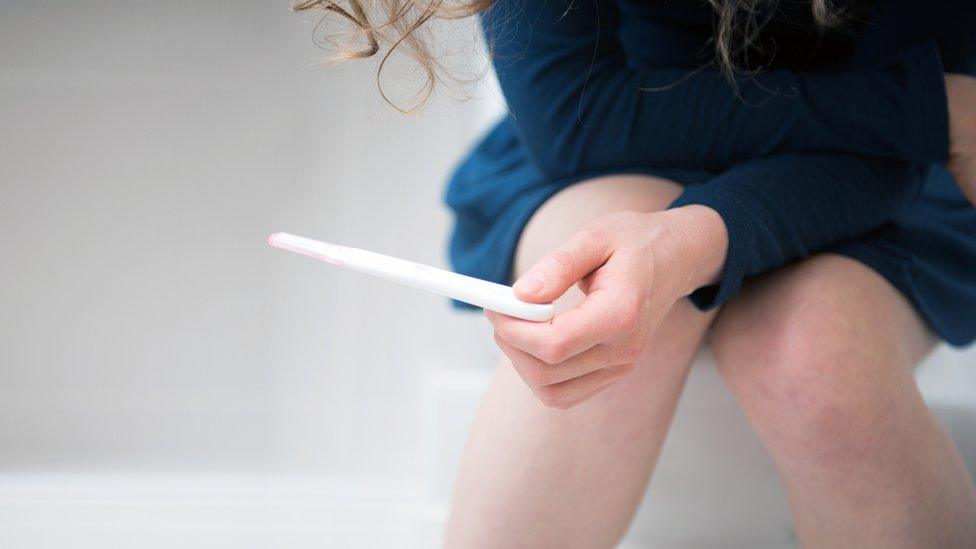'I don't regret my two abortions'
- Published
Sam says she fears she may never be able to afford children
UK attitudes towards abortion are becoming more liberal, a poll suggests.
Sam says financial worries were a driving force in her choice to terminate her pregnancies.
And several women the BBC's Victoria Derbyshire programme have spoken to say the same.
"I knew that there was no way I could have a child. There was no way that I would be able to afford it," says Sam, who shared with the programme details of her abortions, which some may find distressing.
When she became pregnant, she says, she knew straightaway she would not have the baby.
"It was a relatively easy decision, I was really financially stretched... but I don't think I was prepared for the emotional toll.
"I felt like I could go back to work immediately and it'd be fine. But I ended up taking about a week off afterwards after.
"Immediately I felt really relieved [after the abortion]. But it's very stressful. I was still very teary."
'Many hide it'
A YouGov poll of more than 1,600 people in Great Britain suggests public attitudes to abortion are becoming more relaxed.
Currently in England, Wales and Scotland, abortions can be carried out within the first 24 weeks only of a pregnancy.
But later abortions are allowed in certain instances.
And these include if the mother's life is at risk or the child would be born with a severe disability.
Of those surveyed:
53% wanted to see this 24-week limit maintained or increased, compared with 45% in 2015
28% wanted to reduce the limit or ban abortions altogether, compared with 35% in 2015
Sam was open about having an abortion, telling her friends on social media.
She says the support helped get her through it.
"You don't realise all these women around you that have actually had it," she says.
"There was a lot of women who maybe couldn't be open about it for cultural reasons or religious reasons as well. And they hide it from everyone."
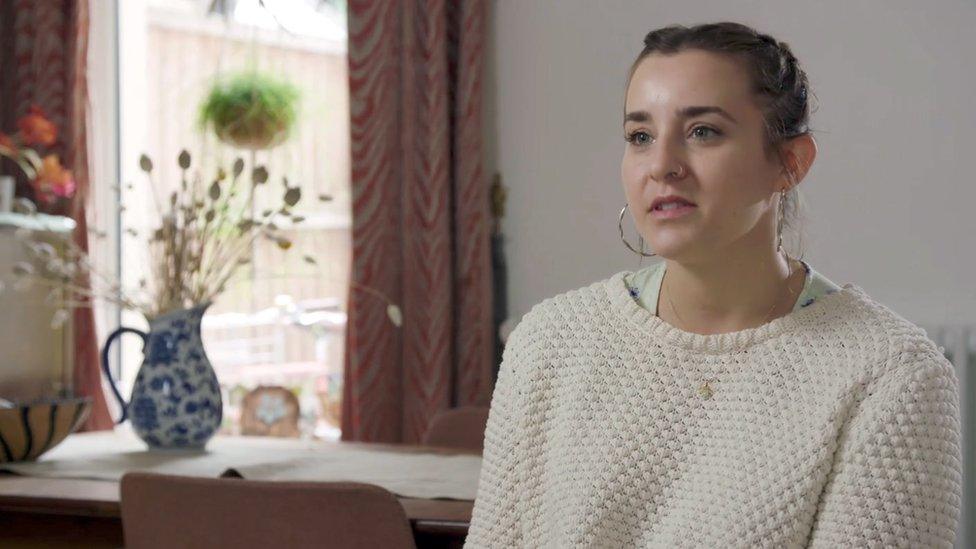
Sam says she felt "really stupid and really ashamed" after having a second abortion
Sam tried lots of different types of contraception but suffered with side effects, so instead she started tracking her cycle on an app.
Seven months later, she had another abortion.
"I felt really stupid and really ashamed because I'd had one so recently and I didn't feel like I could be as open and honest about it," she says.
"I still didn't have a stable income, stable job, stable home, so I knew I still couldn't have this pregnancy. But I was less certain because I really didn't want to have two abortions in my life."
This time Sam chose to have a medical abortion at home and took pills instead of having an operation. But days later, when she was at work, she was horrified when she found an embryo in her menstrual cup.
"I wasn't prepared. I felt it would be more like a heavy clot or uterus lining. And it's not. And I wasn't prepared for that.
"It is like a kidney-bean shape... it's really clear that that could eventually be a foetus.
"Seeing the embryo made me really feel like that was a pregnancy, that I could have had a child."
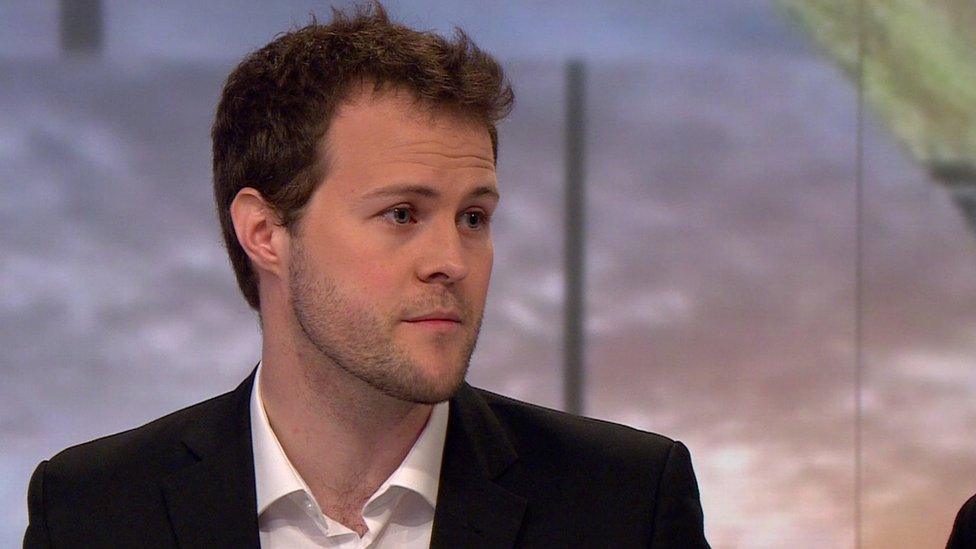
Dr Calum Miller says most people have "no idea" what an abortion after 12 weeks involves
Dr Calum Miller, who is anti-abortion, says doctors and nurses often hide behind "euphemistic terminology".
"People know it's a baby, whereas often it's described as 'products of conception' or 'pregnancy tissue'," he says.
"Most people I speak to have no idea what it involves and are horrified to find out what our law actually says."
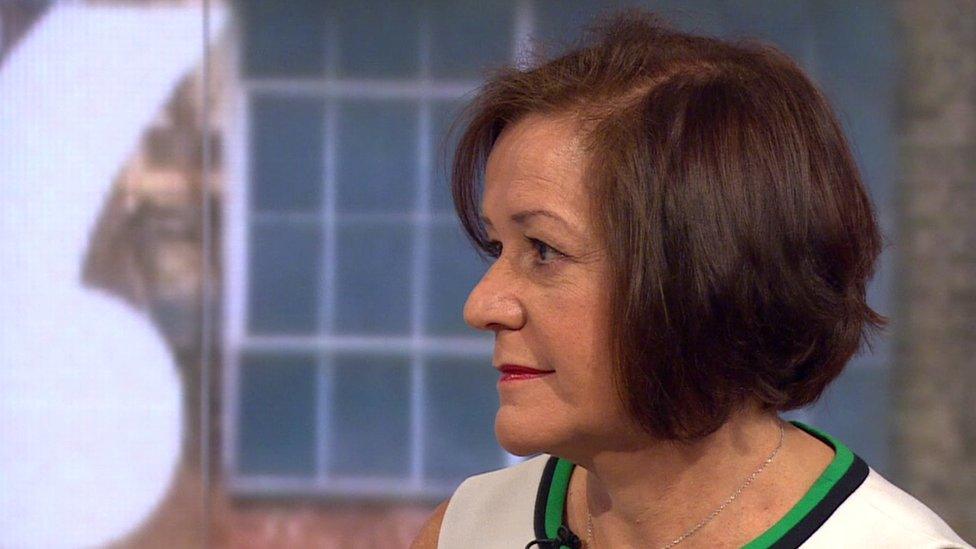
Dr Caroline Gazet says we must move away from the "paternalistic" abortion process and trust women to make their own decision
But Dr Caroline Gazet says women are fully prepared and informed by medical professionals to help them decide.
She says we must trust women and "move away from this paternalistic society" where two doctors must approve an abortion.
"Why are women having to justify having an abortion?" she asks. "It's part of women's healthcare."
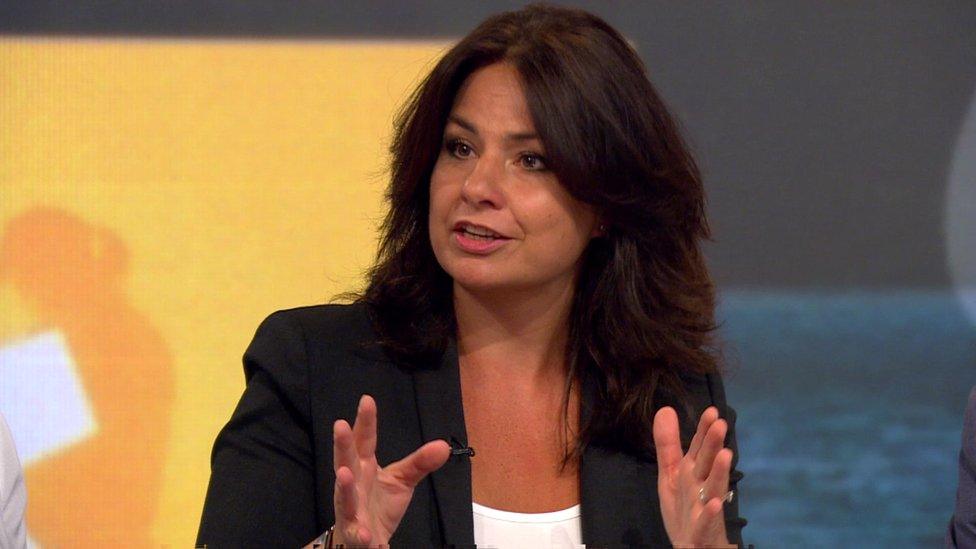
MP Heidi Allen says Northern Ireland abortion legislation "sticks out a sore thumb"
In Northern Ireland, abortion is illegal unless there is a serious risk to a woman's life or health.
But last year a UN committee ruled last year that this violated women's human rights.
And an Amnesty International poll suggested 65% of people in Northern Ireland wanted abortion to be legal.
Independent MP Heidi Allen told the Victoria Derbyshire programme its legislation "sticks out a sore thumb".
The Northern Ireland Assembly collapsed more than two years ago and the UK government has said it is not right for it to intervene.
But Ms Allen accused the UK government of "hiding behind" this - saying it "must act".
'A lot of anxiety'
Sam - who says she doesn't regret having two abortions - estimates as many as 20 of her friends have terminated their pregnancies.
She fears she won't ever be in a position financially to support a child, with many in her generation struggling to get on the housing ladder.
"I'm definitely not going to be able to afford a home within the timeframe that I'd like to have kids," she says.
"It is something that I think would cause me quite a lot of anxiety if I were to get pregnant again."

Follow the BBC's Victoria Derbyshire programme on Facebook, external and Twitter, external - and see more of our stories here.
- Published22 October 2019
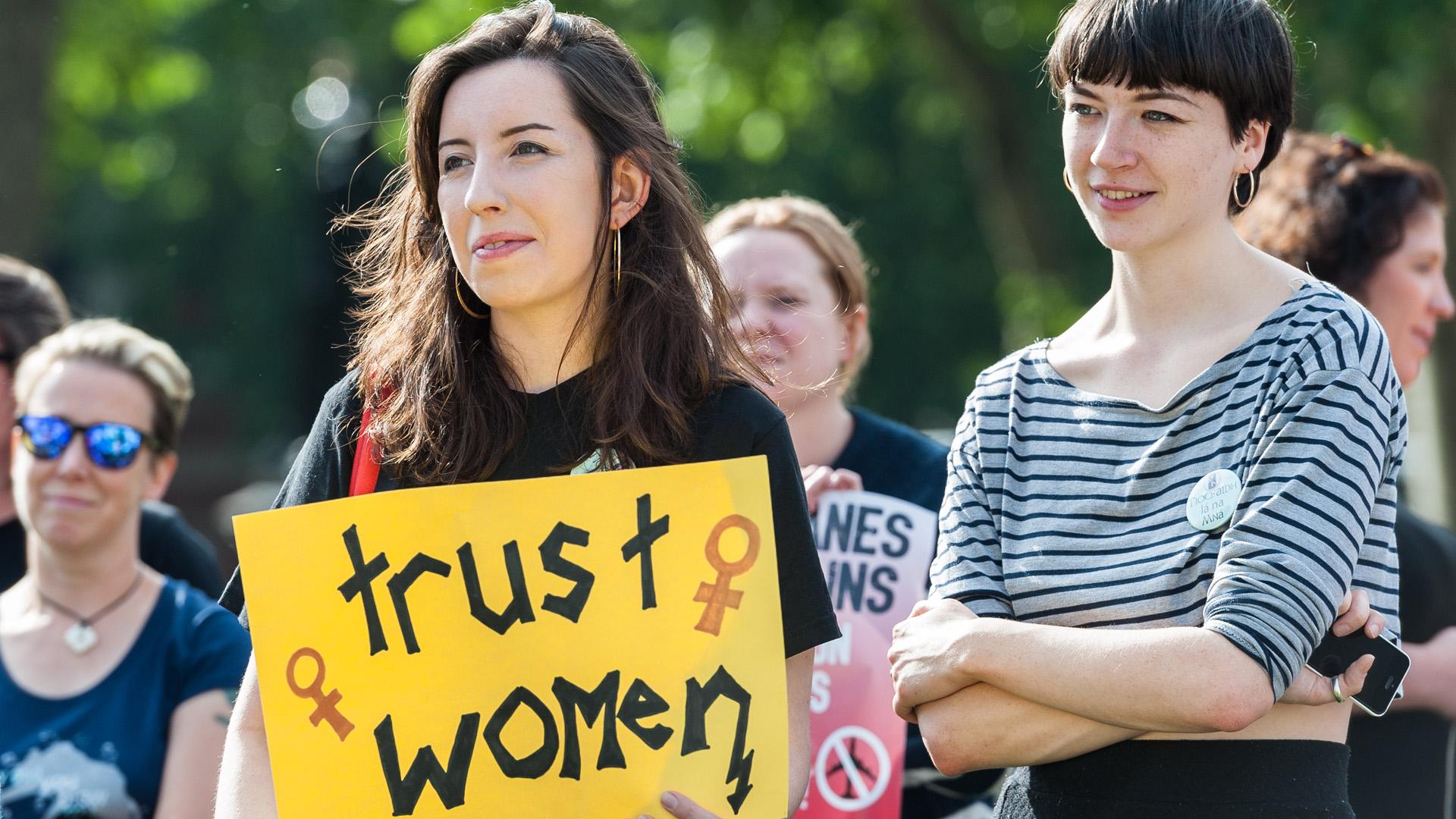
- Published12 April 2019
